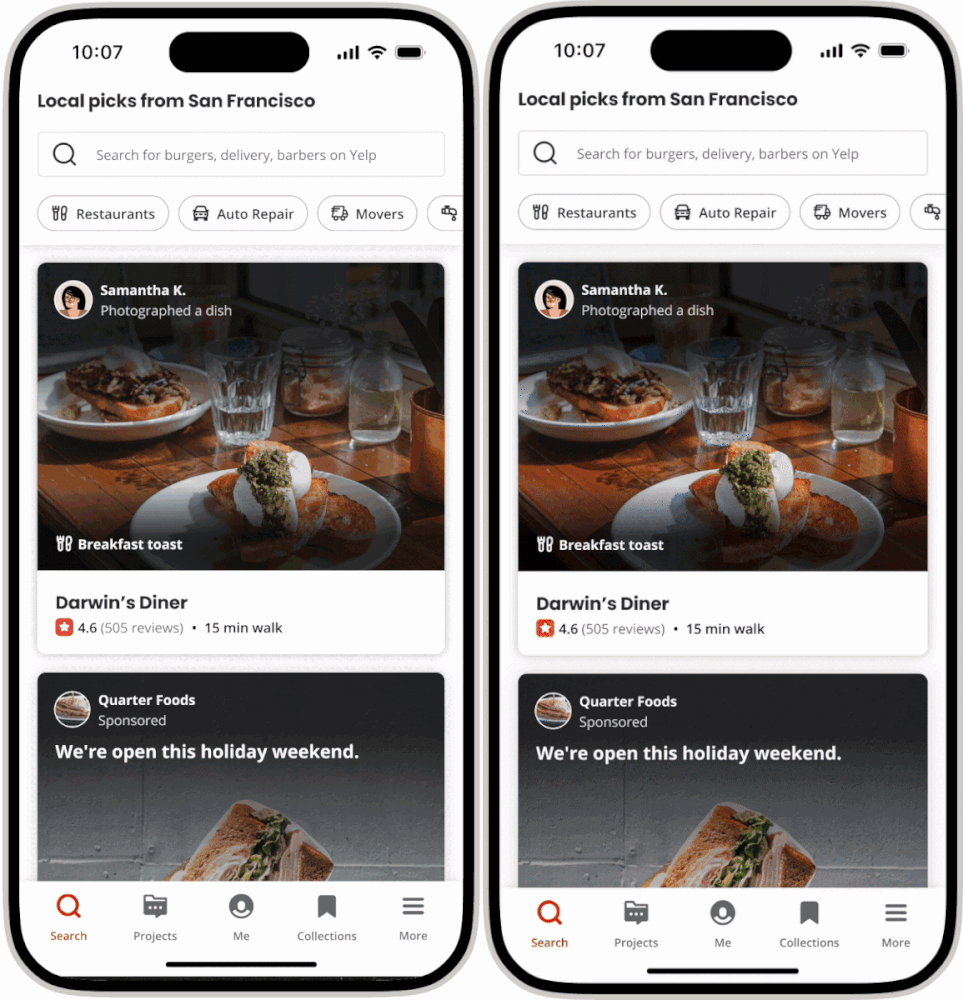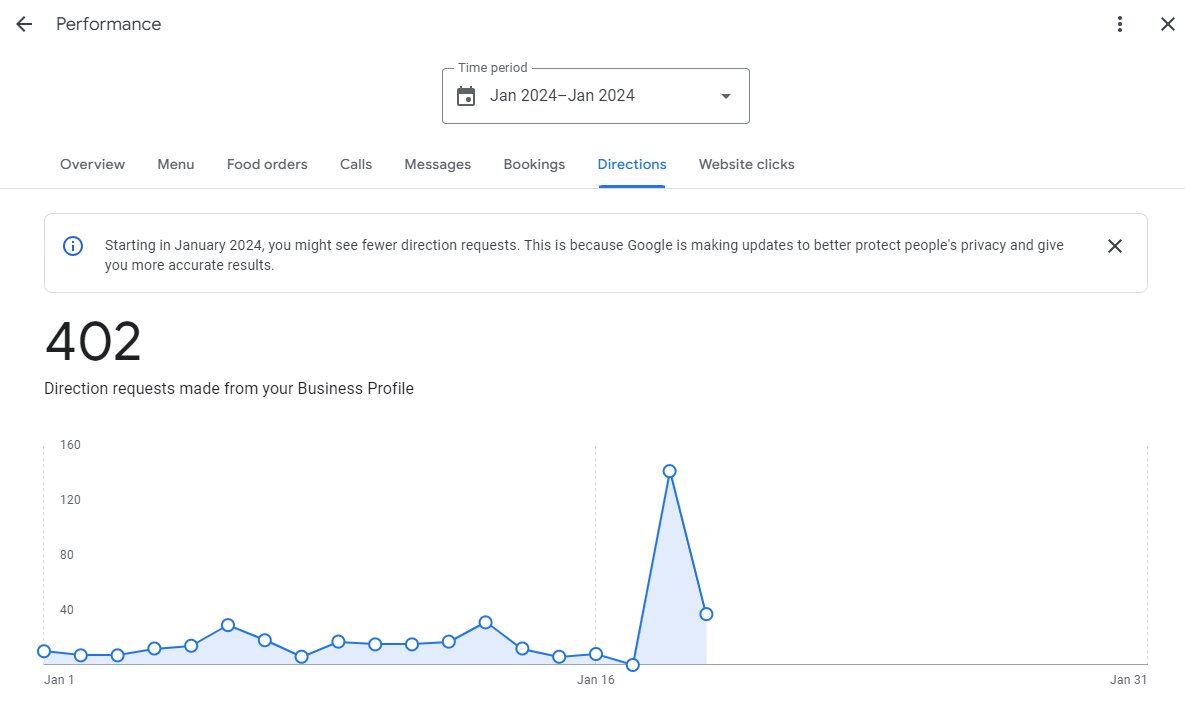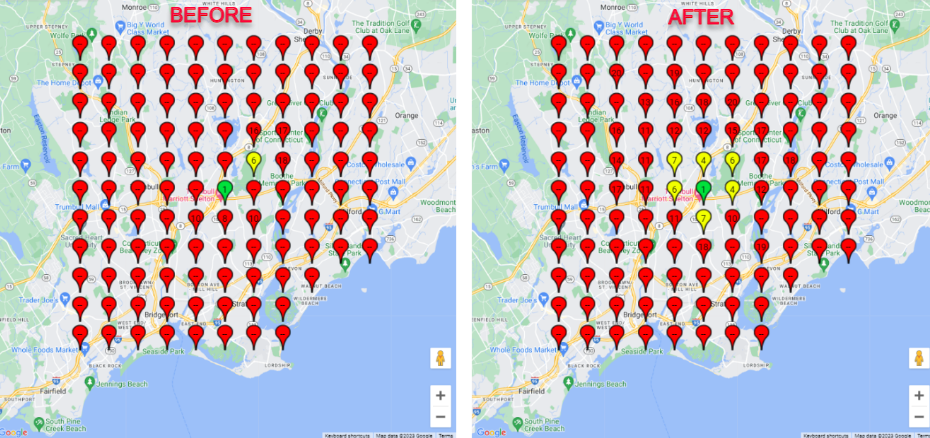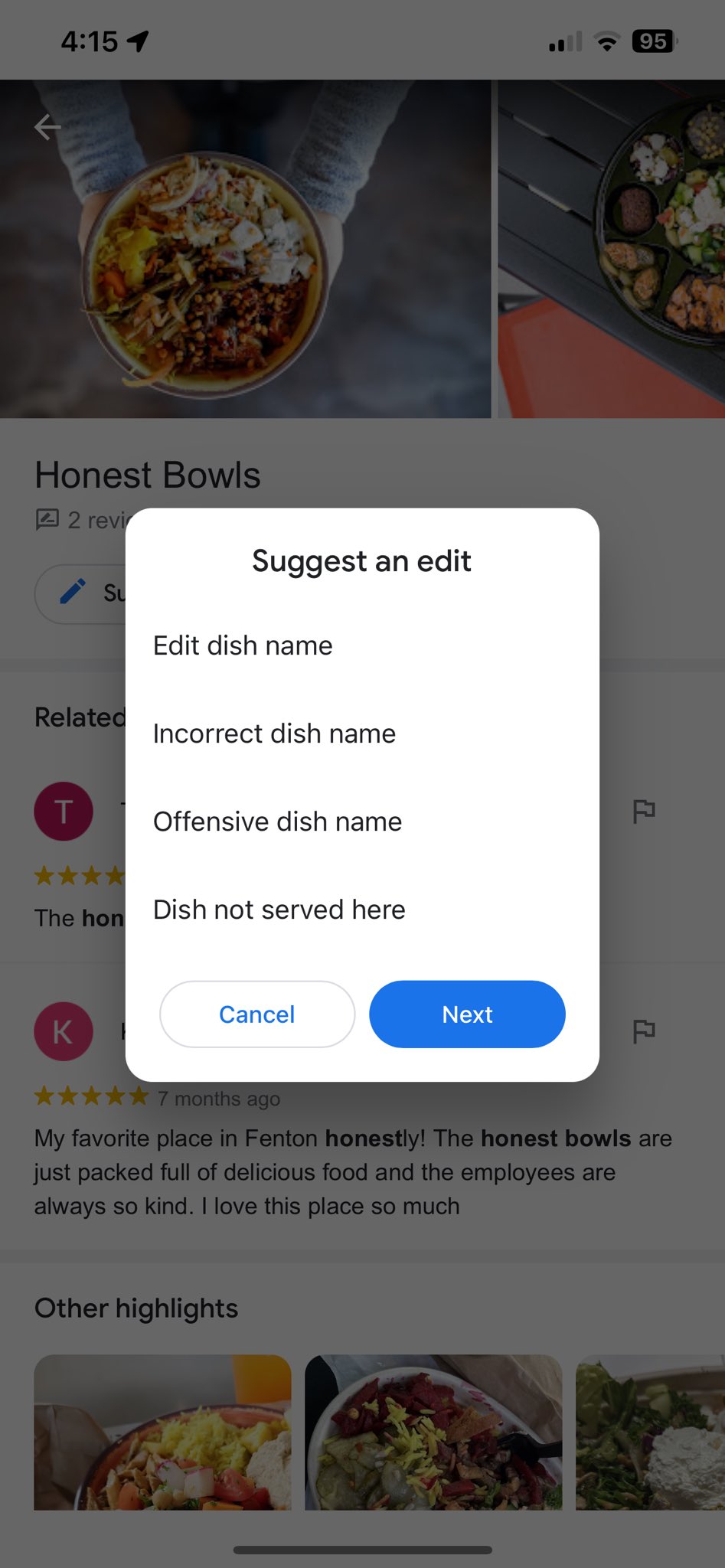Local Memo: Google Search Console Drops Page Experience Report, Adds Recommendations
Local Memo: Yelp Announces AI Features and Visual Feed

Local Memo: Yelp Announces AI Features and Visual Feed
In this week’s post, learn about Yelp’s new AI and visual features; commotion in GBP driving directions; the impact of custom services on local rankings; a feature for restaurants to correct bad menu information in profiles; and the uncertain future of Google’s Search Generative Experience.Yelp Announces AI Features and Visual Feed
Yelp has announced its winter product release, which includes more than 20 new features such as AI-powered summaries of businesses; a new visually-oriented home feed; enhancements to features like Request a Quote; and AI features to help advertisers optimize spend. Yelp notes that AI was already being used to enhance search and in other ways on its platform. What’s new for search are the AI-powered summaries, which Yelp says will “highlight what the business is best known for based on first-hand reviews from users.” Summaries are live in iOS and will be launched for Android and desktop soon. The photo-forward interface in Yelp’s home feed should help to remind businesses that photos are one of the most powerful and engaging elements of any business profile. Yelp says the updated feed will “spotlight high-quality visual content” to help users find the right business.
Yelp’s new home feed emphasizes photo content
What’s Up with GBP Driving Directions?
About a week ago, Google posted a notice in the GBP interface stating, “Starting in January 2024, you might see fewer direction requests." The company explains, "This is because Google is making updates to better protect people's privacy and give you more accurate results." But in an odd contrast to the statement, users are now reporting an unexpected spike, rather than a downward trend, in driving direction counts. One user reported that Google responded to his inquiry by saying, “We are aware of the spike, I have reached out to our team and they have confirmed this is accurate. This is likely from improved detection and reporting from the performance metrics.” Screenshots shared by users show driving directions spikes seeming to occur after January 16.
Google’s notice accompanied by a spike in direction requests, courtesy Search Engine Roundtable
The Impact of Custom Services on Local Rankings
Colan Neilsen has shared evidence that custom services in GBP have an impact on local rankings. It was already established that predefined service terms, supplied by Google and enabled by users, will help businesses rank better for those same queries. Nielsen’s findings are focused on custom service terms entered by the user. The results indicate that custom services have less of an impact than predefined services, but they still can help.
Improvement due to custom services, courtesy Sterling Sky
Google Lets Restaurants Correct User Contributions
Google is now letting restaurants correct information added to their Google profiles by users. The new functionality lets restaurants submit feedback to Google when inaccuracies appear in the dishes featured in the Menu Highlights section of the profile, which compiles user uploaded photos and data. Restaurants can indicate that a dish is no longer served or can point out and correct faulty information about individual dishes.
Interface for restaurants to suggest changes to dish information, courtesy Search Engine Roundtable
Where Is SGE Headed?
Roger Montti has a new piece speculating as to why Google’s SGE seems to be “stuck in Google Labs,” as he puts it. I’ve previously written about the extended timeframe of SGE as an experiment, which was originally slated to end in December, and the uncertain future of SGE as a component of the main Google search interface, which is still expected by many SEOs to be coming “soon.” In a recent statement, Google announced some new AI features in search, such as AI-powered multisearch, which lets Google app users point their phone camera at something, ask a question, and see an AI-powered overview of relevant search results, seemingly very much like an SGE snapshot. In the announcement, as Montti points out, Google refers to SGE as the inspiration for the new feature and calls it a “testbed for bold new ideas.” Montti offers a historical perspective, noting that AI was first introduced into Google search with RankBrain in 2015. Google prefers to keep AI in the background for now, Montti says, because it is still prone to hallucinations and other problems and can’t be relied on as an upfront interface component. Google is continuing to work on making large language models (LLMs) better at incorporating new information and fact checking themselves, validated in its slow approach by Bing’s failure to win significant new market share with a more aggressive AI-forward strategy. AI will likely be more front and center in search someday, Montti thinks, but only when Google feels these critical issues have been solved.Subscribe to Local Memo!
Signup to receive Local memo updates and the latest on localized marketing, delivered weekly to your inbox.







